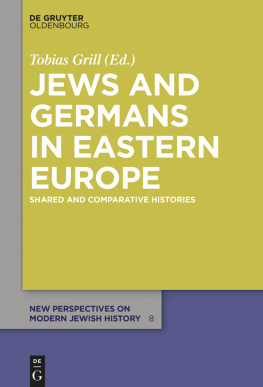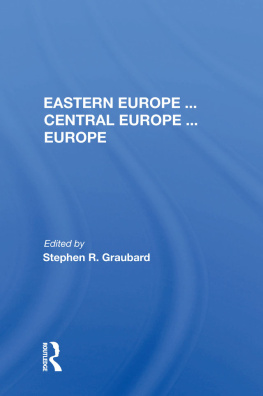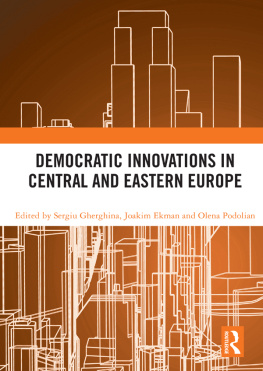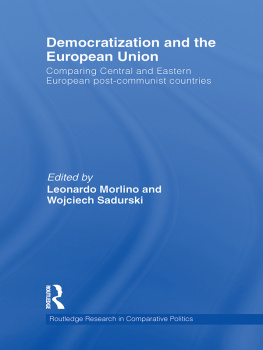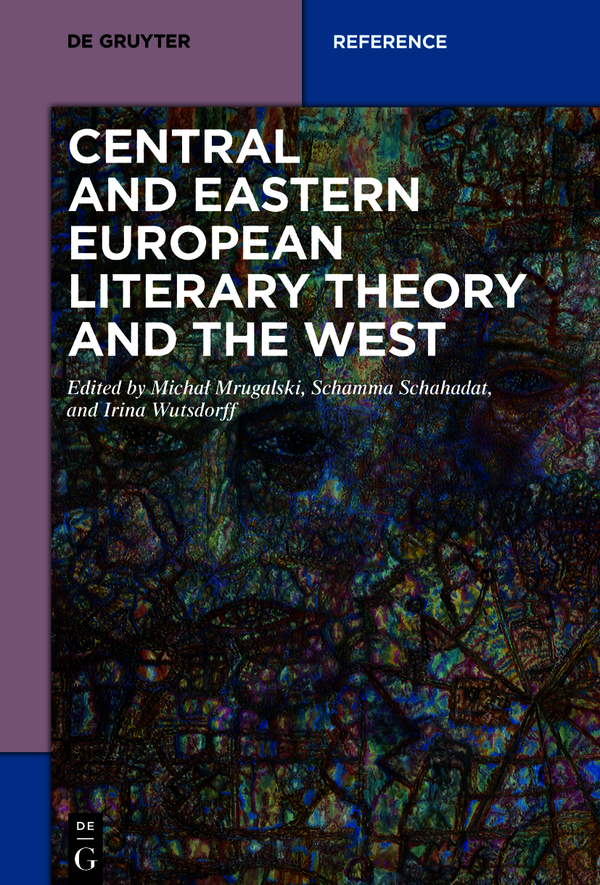The Deutsche Nationalbibliothek lists this publication in the Deutsche Nationalbibliografie; detailed bibliographic data are available on the Internet at http://dnb.dnb.de.
2022 Micha Mrugalski, Schamma Schahadat, Irina Wutsdorff, published by Walter de Gruyter GmbH, Berlin/Boston // The book is published with open access at www.degruyter.com.
This work is licensed under the Creative Commons Attribution-NonCommercial-NoDerivatives 4.0 International License.
Introduction
Micha Mrugalski
Schamma Schahadat
Irina Wutsdorff
The starting point of this book on modern literary theory in the cultures of Central and Eastern Europe as an entangled history is the fact that in the twentieth century there was intensive intellectual movement in the Central and Eastern European region as well as between Eastern and Central Europe and Western academia. This was due not only to an active exchange of ideas, but also to personal and institutional, official and unofficial contact.
Yet this exchange was only possible in a rather restricted manner over long periods of time: political events led to a number of waves of exile and to the seclusion of larger parts of Central and Eastern Europe. A few theories nevertheless made it into the Western discourse on literary theory via exiled scholars, some of them (e.g. s dialogicity) becoming known only indirectly and being transferred to new cultural contexts, while others (e.g. the theories of Olga Freidenberg or Stefania Skwarczyska) had limited reception outside of the Russian or Polish context.
The articles on literary schools and circles, on methods and on keywords, on transformations, translations and migrations take an in-depth, research-based look at the cultural and historical conditionality of literary theory in Central and Eastern Europe as well as its histoire croise. The period under investigation extends from the beginnings of modern literary theory in the early twentieth century to developments in the present day. From a historical perspective, the volume examines the stories of intellectual entanglement and the transfer of theories and ideas between players and institutions in Central and Eastern Europe and beyond (specifically: Russian, Polish and Czech theories in exchange with each other and with the German-speaking world). Submerged and overlooked bodies of knowledge which in the first half of the twentieth century were part of the European intellectual field but tended to be suppressed as the so-called Eastern Bloc was excluded thus become visible in the Western field of theory. Political but also linguistic barriers have contributed to the fact that large parts of Central and East European thought and knowledge have never or only very rarely been taken into consideration in Western Europe and in the Anglo-American sphere.
A famous example of a successful and yet inhibited transfer of ideas is the story of literary structuralism - the origins of which can be traced back to the transcultural Prague of the interwar period - which split into numerous trends following World War II: the internationally renowned Paris structuralism captured the attention of academia, whereas Warsaw structuralism and the further developments of Prague structuralism were much less known in the West. This was unwarranted, since both contained, among other outstanding features, elements of those theories that were later (re-)imported to Central and Eastern Europe from France and the USA under the label of poststructuralism.
In this book we follow two theses: first, the intent to discover a neutral, universal, i.e. culturally independent literariness and associated specific artistic methods in literary texts that Russian scholars of literature and linguistics formulated in the 1910s and 1920s was a reaction to the traditionally high regard for literature as a place of national-cultural identification with a community, as was the case in Russian, Polish, Czech and German culture. It was only in this context that the emergence of a new school in literary studies - Russian formalism - could become a major cultural event to which even (2005 [1924], 138-153) felt obliged to respond. Russian formalism presented itself as the cradle of literary theory, just as the Russian futurists also depicted themselves as the beginning of literature, throwing Pushkin, Dostoevskii and Tolstoi from the steamboat of the present. Second, the concepts of literary theory that came from and moved into different disciplines can be seen as a reaction to the fact that literatures in the literature-centric countries of origin were always thought of in relationship to other cultural areas. Thus the following articles analyse two movements of exchange, transfer, migration and entanglement: one between cultural areas and the other between disciplines, or, more precisely: between literary theory and other disciplines in the humanities and cultural studies.
The research context
In 2004, Galin s cultural semiotics (semiotics as a global theory of culture, Tihanov 2004, 61). The age of literary theory, as Tihanov saw it, was over. Fifteen years later, he writes:
I submit that literary theory is the product of one specific phase in the evolution of one particular regime of relevance. [] Literary theory is only a particular shade of that phenomenon; disciplined, rational thinking about literature does not come to an end with the demise of literary theory as a unique and time-limited episode in that disciplined, rational reflection. ( 2019, 2)
Literary theory was relevant when literature was considered to be an autonomous discourse that tends to differ [] from other discourses (Tihanov 2019, 2), and literary theory is a historically circumscribed mode of thinking about literature (Tihanov 2019, 5). Tihanov observes a move from literary theory to philosophy in the 1980s (Tihanov 2004, 62); one could also argue that in the 1990s rhetoric and politics moved into the foreground, laying the foundation for a new regime of relevance. Contemporary regimes of relevance turn to something outside of literature and language that was the basis of literary theory, as can be seen, for instance, in the ethical or material turn (new materialism) today.
Both of Tihanovs theses are of importance to our book insofar as we analyse from various angles how modern theory of literature - formed in the early twentieth century - evolved, how individual concepts were reviewed, transformed and incorporated into new cultural contexts, how different literary theories (structuralism, hermeneutics, psychoanalytical literary theory, postcolonial studies, etc.) emerged and over the course of time partly fell back on the terminological and conceptual reservoir of early literary theory. How did literary theories dissociate themselves from Central and Eastern European discussions and continue to develop in Germany, France and the USA? In the course of the twentieth century, how was the dialogue of theories emanating from Central and Eastern Europe (first formalism and structuralism, later [cultural] semiotics) conducted in exchange with Western theories and how were local traditions suppressed in favour of American and French theories? What do theories transformed by Western discussions and re-imported into Central and Eastern Europe look like? (On the movements of a (re-)transfer of theory, see and Kliems 2011.) Since these movements between the cultures include a transdisciplinary dimension, it is also important to ask whether literary theory, with its movements into other disciplines and its expansion into different literary theories in the plural (e.g. psychoanalytical theory of literature, literary anthropology) has actually reached its end, as proclaimed by Tihanov, or whether, from the very beginning, it was always also a theory of culture.


